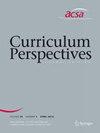Rethinking curriculum implementation in time of COVID-19 and beyond: lessons learnt from rural science teachers
Q2 Social Sciences
引用次数: 0
Abstract
Abstract The COVID-19 pandemic has influenced the way teaching and learning is carried out in South African schools. Policy decisions to curb the spread of the virus were superficially conceived as a health problem as opposed to an understanding of the interconnectedness of education in society. For teaching and learning to continue, schools were compelled to either rotate their learners or embrace remote teaching. Irrespective of the numerous curriculum reforms, curriculum implementation in South Africa has been in a moribund state with little attention given to rural science teachers. In this article, we explore how science teachers in rural areas implemented the curriculum during the COVID-19 pandemic and what lessons could be learnt from their experience to foster the curriculum implementation discussion in South Africa. We used a qualitative research approach and phenomenology as our research methodology. Nine rural science teachers were purposively selected for a semi-structured interview. An interpretative phenomenological analysis was used to analyse the data. Our findings revealed that the government’s response to the pandemic appeared to have overlooked already existing fundamental problems associated with curriculum implementation in rural areas. We learnt in this study that curriculum implementation is narrowly conceived as a classroom pedagogic exercise. As an implication, there is a need for curriculum implementation reforms in South Africa, one that would consider contextual curriculum theorising and the experiences of rural science teachers.重新思考2019冠状病毒病疫情期间及之后的课程实施:农村科学教师的经验教训
2019冠状病毒病大流行影响了南非学校的教学方式。遏制病毒传播的政策决定被肤浅地认为是一个健康问题,而不是对社会教育相互联系的理解。为了让教与学继续下去,学校被迫要么轮换学生,要么采用远程教学。尽管进行了大量的课程改革,但南非的课程实施一直处于停滞状态,对农村科学教师的关注很少。在本文中,我们探讨了农村地区的科学教师如何在2019冠状病毒病大流行期间实施课程,以及可以从他们的经验中吸取哪些教训,以促进南非的课程实施讨论。我们使用了定性研究方法和现象学作为我们的研究方法。有目的地选择9名农村科学教师进行半结构化访谈。采用解释性现象学分析来分析数据。我们的调查结果显示,政府对大流行的反应似乎忽视了与农村地区课程实施相关的已经存在的基本问题。我们在这项研究中了解到,课程实施被狭隘地视为课堂教学练习。因此,南非有必要进行课程实施改革,考虑情境课程理论和农村科学教师的经验。
本文章由计算机程序翻译,如有差异,请以英文原文为准。
求助全文
约1分钟内获得全文
求助全文
来源期刊

Curriculum Perspectives
Social Sciences-Education
CiteScore
2.50
自引率
0.00%
发文量
21
期刊介绍:
· Encourage curriculum research and scholarship that can lead to more equitable and socially just societies.
· Support policy makers, teachers, parents and students by publishing informed and relevant research directed at improvements in student learning.
· Provide a forum for an international exchange of curriculum ideas and issues.
· Encourage innovative curriculum thinking, multiple ways of knowing and understanding, critical and creative problem solving to develop solutions that can make a difference in the lives of students and their communities.
Australian curriculum scholars, teachers, parents and students are increasingly aware of the globalized world of which they are a part. The curriculum issues that affect them also affect others in this borderless environment. The mission of Curriculum Perspectives, therefore, is to bring Australian curriculum scholarship to the world and to encourage an international exchange of ideas that can enhance curriculum experiences for students across the globe
 求助内容:
求助内容: 应助结果提醒方式:
应助结果提醒方式:


